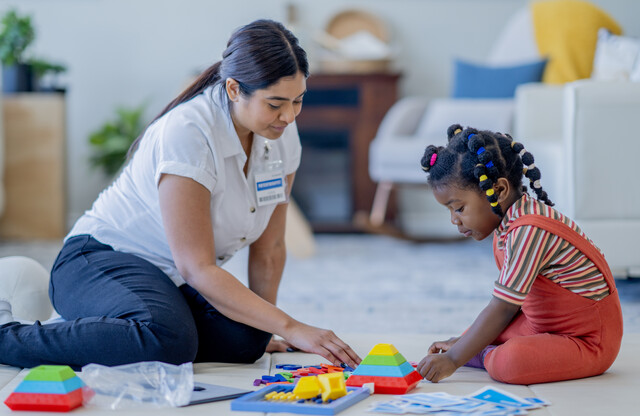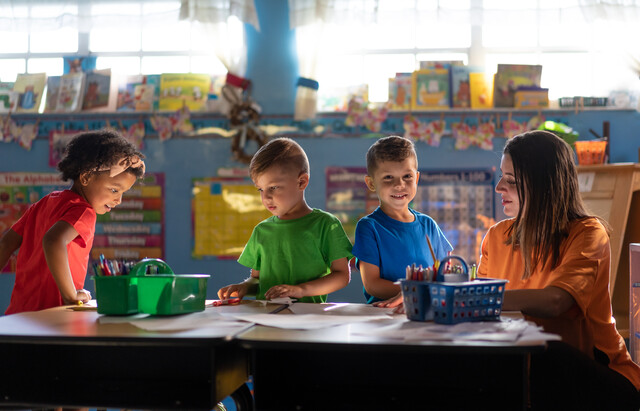Online Class: Child Safety for Parents

no certificate
with CEU Certificate*
-
15Lessons
-
21Exams &
Assignments -
433Students
have taken this course -
5Hours
average time -
0.5CEUs
Course Description
Holistic Childcare: A Comprehensive Course to Nurturing the Whole Child
In the enchanting journey of parenting and caregiving, every day presents a new mystery, a new challenge, and countless joys. While children may not come with a manual, our comprehensive course aims to be the next best thing, ensuring the holistic well-being of every child you nurture.
Nurturing a child is not just about meeting their physical needs; it's an intricate dance of ensuring their mental, emotional, and physical wellness, all while adapting to the evolving stages of their growth. This course delves deep into this journey, offering insights, guidelines, and solutions for every twist and turn you might encounter.
While the digital age bombards caregivers with a plethora of advice, not all of it is rooted in reality or research. Our course stands apart by offering a blend of scientifically-backed information and real-world, actionable strategies. From deciphering the various parenting styles to understanding the nuances of technology use in a child's life, we provide a balanced perspective to empower your decisions.
Venturing beyond theory, our course dives into practical examples, addressing real-life challenges. Be it the elusive quest for the perfect bedtime routine or setting clear, effective boundaries in a tech-driven age, our modules provide a roadmap for these everyday challenges.
Our expertly curated syllabus includes:
- Decoding the nutrition maze for optimal child health.
- The science of sleep and crafting bedtime rituals.
- Navigating potential pitfalls: drugs, social stressors, and more.
- Comprehensive overview of prevalent childhood illnesses, prevention, and care.
- The art and science of setting boundaries in a digital age.
Our aim is to be a trusted ally in your parenting or caregiving journey, bridging the gap between information and application. So, whether you're a first-time parent, a seasoned caregiver, or someone seeking to enrich their understanding of child well-being, this course is crafted just for you. Embrace this journey of love, understanding, and growth, and let us guide you every step of the way.
- Completely Online
- Self-Paced
- Printable Lessons
- Full HD Video

- 6 Months to Complete
- 24/7 Availability
- Start Anytime
- PC & Mac Compatible
- Android & iOS Friendly
- Accredited CEUs

Course Lessons
Lesson 1. Crafting Life's Tapestry: Child Well-Being
Cognitive development thrives in a curious environment supported by questions, exploration, and age-appropriate responsibilities. Encouraging participation in household tasks instills adaptability, crucial as children navigate new environments or challenges.Lesson 2. Understanding the Complex Landscape of Child Maltreatment
Statistical evidence highlights the persistent nature of child maltreatment, emphasizing the urgency for comprehensive prevention strategies. By equipping mandated reporters and caregivers with necessary insights, community vigilance against abuse and neglect can be strengthened.Lesson 3. The Art and Science of Adaptive Parenting
Parenting weaves together art and science, influenced by instincts and culture, with universal goals of ensuring children’s safety, preparing them as contributors to society, and instilling family values. Various styles, defined by levels of control and warmth, adapt to cultures and socio-economic factors, while concepts like authoritative parenting best balance discipline with warmth to foster child development.Lesson 4. Common Illnesses and Injuries in Children
Children's exploratory behavior often leads to minor injuries, which can generally be treated with simple first aid. However, parents must stay alert to signs indicating more severe conditions, like fractures, requiring urgent medical attention.Lesson 5. Tiny Invaders, Big Challenge
Preventing the spread of infection involves understanding pathogen transmission and minimizing exposure in environments like schools and daycare centers. Empowering families with health literacy and robust immune practices strengthens defenses against microscopic invaders.Lesson 6. Fostering a Love for Learning and Play
Ensuring physical safety and promoting curiosity can be seamlessly blended by adapting home environments with anchored furniture and age-appropriate play zones. Such thoughtful accommodations not only safeguard children from risks but also imbue them with a sense of confidence and responsibility.Lesson 7. Navigating Substance Use: A Parent's Guide
By modeling positive behavior and fostering communication, parents can guide children safely through familiarizing environments with drugs and alcohol. Viewing household drugs, peer pressure, and the allure of illicit substance use through honest dialogue is key to fostering safer decision-making in kids.Lesson 8. Aquatic Safety for Children: Balance of Joy and Caution
Water brings joy to families, yet poses significant risks, with drowning being a leading cause of accidental deaths in children. Ensuring vigilance and implementing strategic supervision can greatly mitigate these risks.Lesson 9. Proactive Preparation for Family Resilience
Effective preparedness goes beyond stockpiling necessities; it encompasses cultivating a resilient mindset and supportive community network. By leveraging technological tools and fostering neighborhood bonds, families can weave a net of safety that catches them in times of need.Lesson 10. Impact of Family Dynamics on Childhood Stress
Childhood stress and depression can arise from family dynamics, socioeconomic challenges, and school environments, affecting a child's emotional well-being. Employing open communication, emotional literacy, and community support can help foster resilience and equip children with coping strategies.Lesson 11. Empowered Growth Through Social Dynamics
This lesson dives into the pervasive nature of social stressors faced by children and young adults, emphasizing the balance between developing independence and maintaining healthy relationships. Key strategies like fostering resilience, practicing empathy, and promoting open communication are highlighted to help manage these challenges.Lesson 12. Raising Healthy Eaters: Essential Nutritional Concepts for Children
Good nutrition is crucial for children's physical and cognitive development, with essential nutrients fueling growth and bolstering immunity. By incorporating a variety of wholesome foods and familiarizing with age-specific dietary needs, parents can cultivate lifelong healthy eating habits.Lesson 13. Harnessing Movement: Building a Healthier Tomorrow for Kids
Promoting physical activity in children is a multi-faceted journey that intertwines physical fitness with emotional and social development. Immersion in these activities allows for lifelong health benefits and catalyzes children's potential, fostering confidence and resilience.Lesson 14. The Vital Role of Sleep in Child Development
Effective sleep training, beginning in infancy, involves creating consistent routines that encourage self-soothing skills and a sense of security, thereby laying the groundwork for healthy sleep habits. Techniques like introducing sleep cues and maintaining a calming bedtime atmosphere contribute to the development of independent sleep patterns.Lesson 15. Balanced Tech Use: Guidelines for Families in a Wired World
Digital platforms can enhance learning but should complement hands-on, interactive experiences to maximize cognitive engagement in children. The lesson advocates for balancing screen time with traditional activities and involving parents in content selection to ensure age-appropriate interactions online.
Learning Outcomes
- Demonstrate methods to empower children with skills for independence and problem-solving, enhancing their ability to navigate life's challenges confidently.
- Recognize the interconnected dimensions of child well-being and apply strategies to nurture holistic development across physical, emotional, social, and cognitive domains.
- Define and differentiate between the types of child maltreatment, including physical, sexual, emotional abuse, and neglect, based on their specific characteristics and signs.
- Demonstrate the ability to recognize behavioral and physical indicators of child abuse and neglect, and outline an appropriate response strategy incorporating community resources and interventions.
- Define and distinguish between the four main parenting styles (authoritative, authoritarian, permissive, uninvolved) based on control and emotional warmth exhibited by parents.
- Demonstrate the ability to analyze how different cultural contexts influence parenting priorities and how parents adapt their strategies to meet children's needs.
- Define key symptoms and appropriate management strategies for common childhood illnesses like the common cold, influenza, and gastroenteritis.
- Demonstrate the ability to identify situations requiring professional medical intervention for childhood illnesses and injuries, ensuring timely and appropriate care.
- Implement practical strategies to prevent infectious disease spread through effective hygiene practices and environmental cleaning.#
- Recognize and describe the stages of the infectious process including pathogen presence, transmission, and host resistance.
- Demonstrate the ability to utilize organizational strategies that promote children's independence by arranging household items to facilitate easy access and encourage self-sufficiency.
- Recognize key elements in creating safe and stimulating environments for children by identifying specific measures to enhance physical and emotional safety in home spaces.
- Demonstrate understanding of the potential dangers associated with common household drugs and chemicals by identifying at least three substances and their risks.
- Demonstrate mastery of lesson content at levels of 70% or higher.
Additional Course Information

- Document Your Lifelong Learning Achievements
- Earn an Official Certificate Documenting Course Hours and CEUs
- Verify Your Certificate with a Unique Serial Number Online
- View and Share Your Certificate Online or Download/Print as PDF
- Display Your Certificate on Your Resume and Promote Your Achievements Using Social Media

Choose Your Subscription Plan
No Certificate / No CEUs
This course only
| Includes certificate | X |
| Includes CEUs | X |
| Self-paced |

|
| Instructor support |

|
| Time to complete | 6 months |
| No. of courses | 1 course |
Certificate & CEUs
This course only
| Includes certificate |

|
| Includes CEUs |

|
| Self-paced |

|
| Instructor support |

|
| Time to complete | 6 months |
| No. of courses | 1 course |
Certificates & CEUs
Includes all 600+ courses
| Includes certificate |

|
| Includes CEUs |

|
| Self-paced |

|
| Instructor support |

|
| Time to complete | 12 Months |
| No. of courses | 600+ |
Certificates & CEUs
Includes all 600+ courses
| Includes certificate |

|
| Includes CEUs |

|
| Self-paced |

|
| Instructor support |

|
| Time to complete | 24 Months |
| No. of courses | 600+ |
Related Courses
-
 3 hours
0.3 CEUs
The Art of Breathing
+ More Info
3 hours
0.3 CEUs
The Art of Breathing
+ More Info
-
 8 hours
0.8 CEUs
Meditation Mastery: Learn How to Meditate
+ More Info
8 hours
0.8 CEUs
Meditation Mastery: Learn How to Meditate
+ More Info
-
 3 hours
0.3 CEUs
Criminology: The Anatomy of American Justice
+ More Info
3 hours
0.3 CEUs
Criminology: The Anatomy of American Justice
+ More Info
-
 5 hours
0.5 CEUs
Emotional Intelligence
+ More Info
5 hours
0.5 CEUs
Emotional Intelligence
+ More Info
-
 8 hours
0.8 CEUs
Legal Terminology 101
+ More Info
8 hours
0.8 CEUs
Legal Terminology 101
+ More Info
-
 5 hours
0.5 CEUs
Depression Management
+ More Info
5 hours
0.5 CEUs
Depression Management
+ More Info
-
 3 hours
0.3 CEUs
Understanding Learning Styles
+ More Info
3 hours
0.3 CEUs
Understanding Learning Styles
+ More Info
-
 9 hours
0.9 CEUs
Relaxation 101
+ More Info
9 hours
0.9 CEUs
Relaxation 101
+ More Info
-
 7 hours
0.7 CEUs
Workplace Sexual Harassment in the #MeToo Era
+ More Info
7 hours
0.7 CEUs
Workplace Sexual Harassment in the #MeToo Era
+ More Info
-
 5 hours
0.5 CEUs
Mastering Conversation Skills
+ More Info
5 hours
0.5 CEUs
Mastering Conversation Skills
+ More Info
-
 10 hours
1.0 CEUs
Contract Law 101 - An Introduction
+ More Info
10 hours
1.0 CEUs
Contract Law 101 - An Introduction
+ More Info
-
 10 hours
1.0 CEUs
Understanding Addictions
+ More Info
10 hours
1.0 CEUs
Understanding Addictions
+ More Info
-
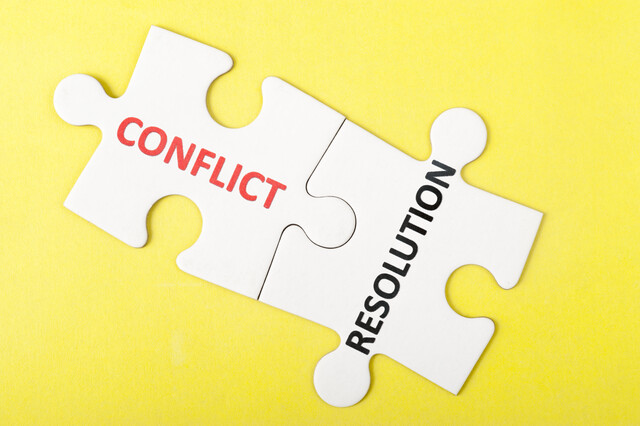 7 hours
0.7 CEUs
Conflict Resolution
+ More Info
7 hours
0.7 CEUs
Conflict Resolution
+ More Info
-
 4 hours
0.4 CEUs
Stress Management
+ More Info
4 hours
0.4 CEUs
Stress Management
+ More Info
-
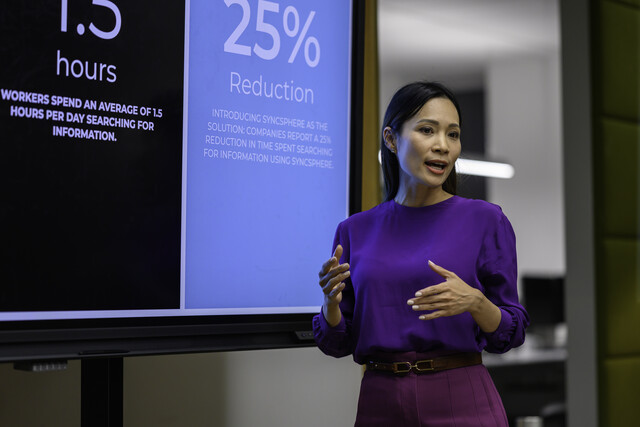 8 hours
0.8 CEUs
Motivational and Public Speaking
+ More Info
8 hours
0.8 CEUs
Motivational and Public Speaking
+ More Info
-
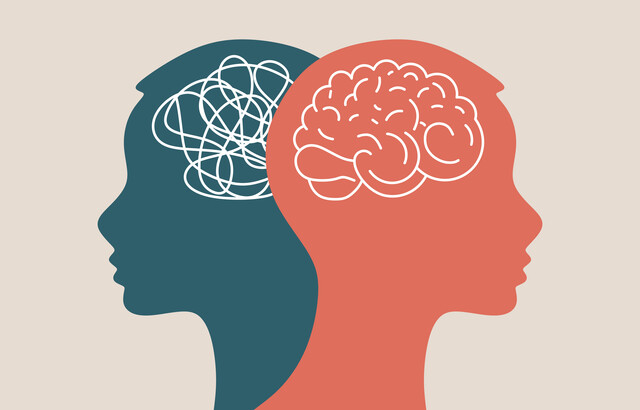 16 hours
1.6 CEUs
Psychology 101
+ More Info
16 hours
1.6 CEUs
Psychology 101
+ More Info
-
 7 hours
0.7 CEUs
Understanding Drug and Alcohol Abuse
+ More Info
7 hours
0.7 CEUs
Understanding Drug and Alcohol Abuse
+ More Info
-
 7 hours
0.7 CEUs
How to Deal with Difficult Personalities
+ More Info
7 hours
0.7 CEUs
How to Deal with Difficult Personalities
+ More Info
-
 7 hours
0.7 CEUs
Innovative Thinking Skills
+ More Info
7 hours
0.7 CEUs
Innovative Thinking Skills
+ More Info
-
 5 hours
0.5 CEUs
Creative Thinking Skills
+ More Info
5 hours
0.5 CEUs
Creative Thinking Skills
+ More Info
-
 5 hours
0.5 CEUs
Positive Parenting Techniques
+ More Info
5 hours
0.5 CEUs
Positive Parenting Techniques
+ More Info
-
 5 hours
0.5 CEUs
Home Safety
+ More Info
5 hours
0.5 CEUs
Home Safety
+ More Info
-
 6 hours
0.6 CEUs
Introduction to Abnormal Psychology
+ More Info
6 hours
0.6 CEUs
Introduction to Abnormal Psychology
+ More Info
-
 3 hours
0.3 CEUs
Workplace Drug Use - An HR Guide
+ More Info
3 hours
0.3 CEUs
Workplace Drug Use - An HR Guide
+ More Info
-
 7 hours
0.7 CEUs
Healthy Relationships
+ More Info
7 hours
0.7 CEUs
Healthy Relationships
+ More Info
-
 5 hours
0.5 CEUs
Critical Thinking Skills
+ More Info
5 hours
0.5 CEUs
Critical Thinking Skills
+ More Info
-
 3 hours
0.3 CEUs
Empowerment for Single Parents
+ More Info
3 hours
0.3 CEUs
Empowerment for Single Parents
+ More Info
-
 8 hours
0.8 CEUs
Assertiveness Training
+ More Info
8 hours
0.8 CEUs
Assertiveness Training
+ More Info
-
 5 hours
0.5 CEUs
Basic Parenting Skills
+ More Info
5 hours
0.5 CEUs
Basic Parenting Skills
+ More Info
-
 15 hours
1.5 CEUs
Sociology 101
+ More Info
15 hours
1.5 CEUs
Sociology 101
+ More Info
-
 6 hours
0.6 CEUs
Confidence Building
+ More Info
6 hours
0.6 CEUs
Confidence Building
+ More Info


